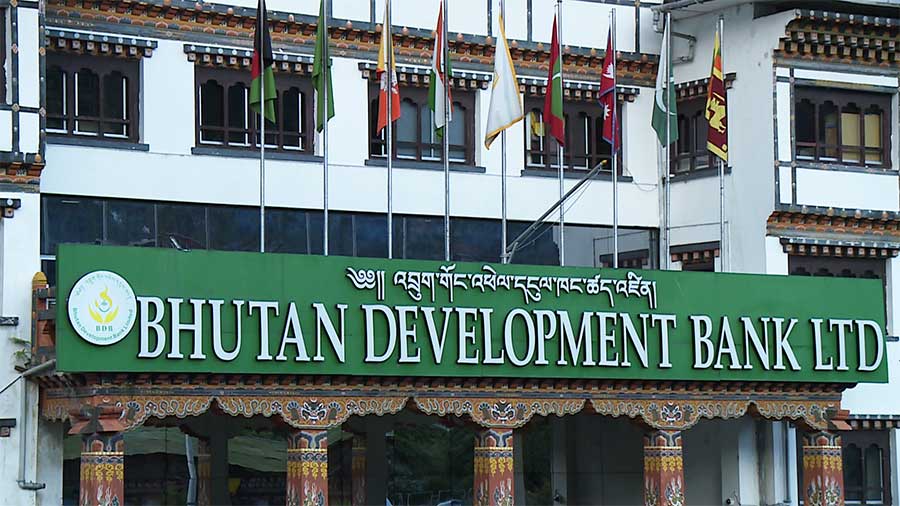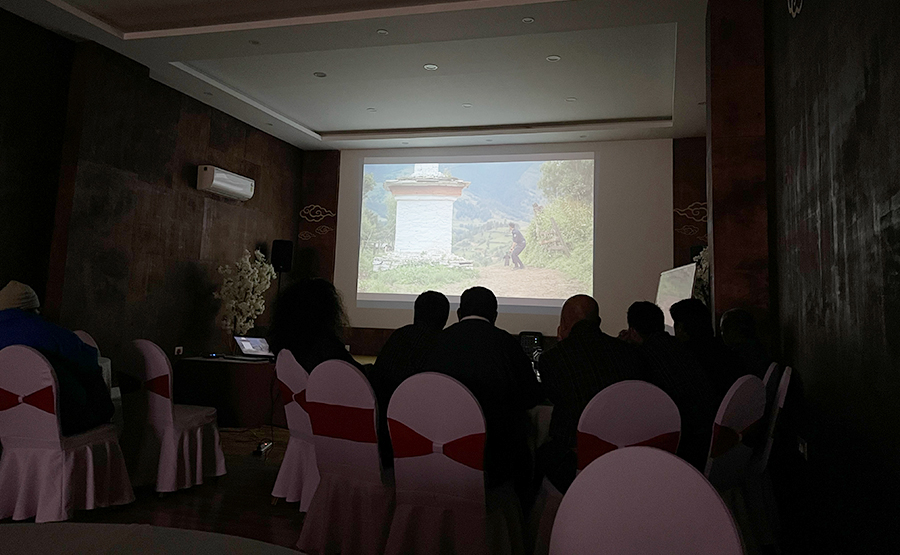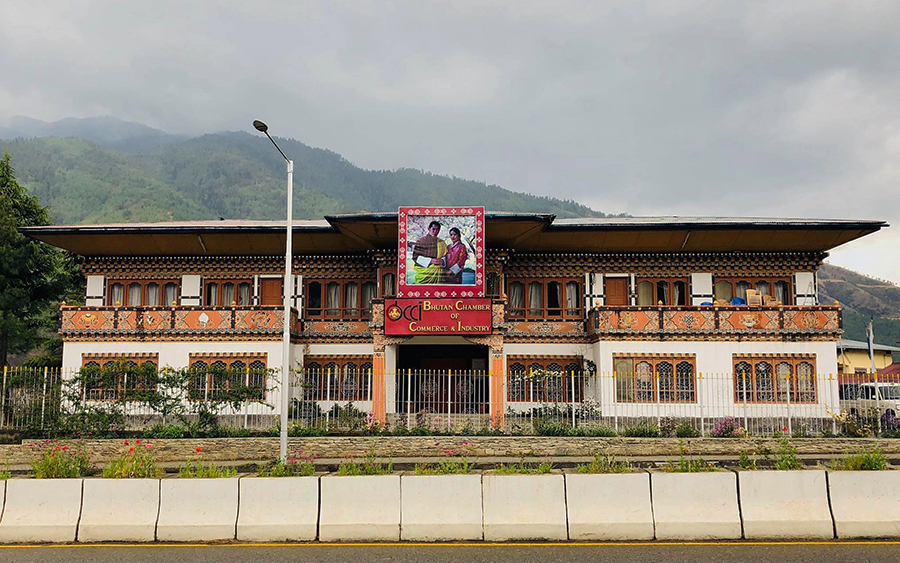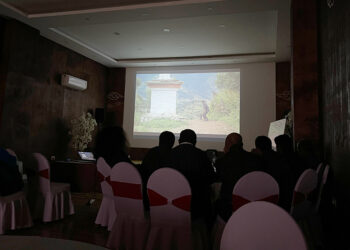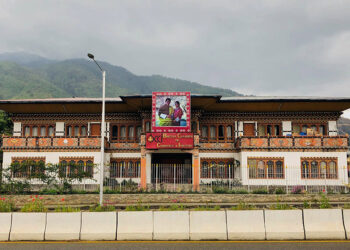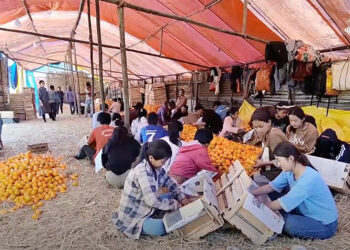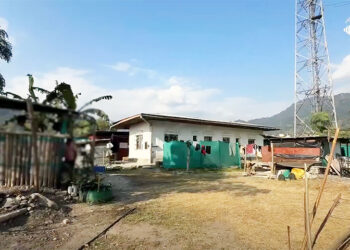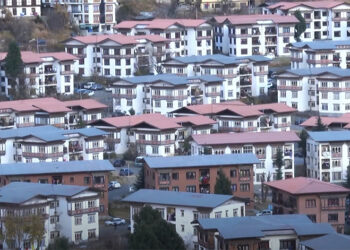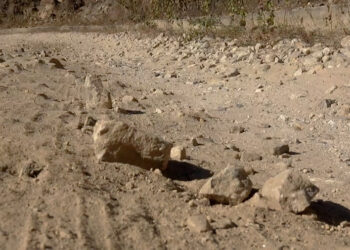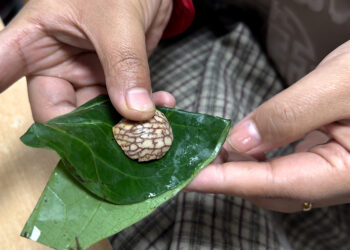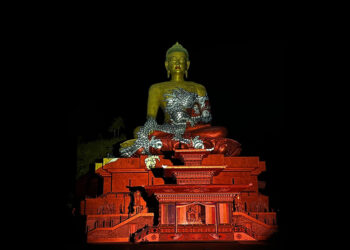Recent Stories
Winter jobs at orange depots help Samdrup Jongkhar students ease financial strain
Winter offers students the perfect opportunity to spend quality time with friends and family, creating lasting memories during the season....
Phuentsholing’s Happiness Centre battles funding shortage amid rising demand
Phuentsholing’s Happiness Centre is struggling to keep up with the growing demand for its services. Since its establishment in 2019,...
Government plans to expand orange export markets, eyeing Thailand
The country’s orange exporters are seeking to diversify their markets beyond Bangladesh and India, seeking better prices for their produce....
New rules for occupying government housing
People occupying government housing in Thimphu must now adhere to a new set of conditions if they want to continue...
MoIT to set up Mobile Monitoring Unit to ensure quality construction
To address the public construction quality issues, the Infrastructure and Transport Ministry plans to set up a separate mobile monitoring...
Citrus fruit drop threatens orange yield, farmers unite to combat infestation
Orange, a cash crop in Maenchhuna village in Dagana’s Drujeygang Gewog, have been hit hard by the Chinese citrus fly,...
Audit observes poor workmanship in farm road GSB projects
In its latest report, the Royal Audit Authority revealed several audit issues concerning the laying of Granular Sub-Base (GSB) on...
Areca nut use hits 60% in Bhutan, raising health concerns
The National Health Survey 2023 reveals that areca nut consumption among Bhutanese aged 15 to 69 rose to nearly 60...
Politics
RCSC defends PME category, proposes targeted support for civil servants
The Royal Civil Service Commission (RCSC) indicated that it is exploring alternative support measures for civil servants classified under the...
Popular
-
Post-mortem confirms foul play: Progress in investigation of 24-year-old woman’s death
-
Thimphu Police investigate death of man in suspected burglary
-
Six individuals sentenced to upto nine years in sexual abuse cases of minors
-
Elon Musk’s Starlink satellite internet service reaches Bhutan
-
Four + one model to raise funds for Gelephu Mindfulness City
Recent News
New rules for occupying government housing
People occupying government housing in Thimphu must now adhere to a new set of conditions if they want to continue to occupy the shelter. The tenants and their spouses must not own property in Thimphu Thromde and their combined gross income must not exceed the threshold set for the housing category. To be eligible for Changjiji Housing Unit, the gross...
Buddha Statue comes alive with Gerry Hofstetter’s light display
The Buddha Statue at Kuensel Phodrang in Thimphu came alive last night with Gerry Hofstetter’s light art. His projections featured the national flag, masks and mandala, among other things, For the Swiss light artist and filmmaker, Bhutan marks the 88th country where he has showcased his art. Despite the cold at Kuensel Phodrang, around a hundred people gathered to witness...
Moringa leaves become new source of income for Langchenphu farmers
In Samdrup Jongkhar, residents of Langchenphu Gewog are turning moringa leaves into a source of income. Farmers in the gewog sell the leaves to a youth-led enterprise that processes them into moringa tea. The Moringa tree, which is also called ‘the miracle tree’ or ‘the tree of life’, is considered one of the most nutrient-dense plants. The tree, known to...
Health ministry proposes DSA increase for patients abroad to Nu 400
The health ministry is working to increase the Daily Subsistence Allowance (DSA) for patients referred abroad for medical treatment from Nu 150 to Nu 400. It is to ease their financial and emotional burdens. It is part of broader revisions to Bhutan's referral guidelines, including provisions for ABO-incompatible kidney transplants. This adjustment will increase allowance expenses by threefold. The health...
Recent News
- ESP loan deadline tomorrow, no extensions
- Her Majesty Queen Mother Dorji Wangmo Wangchuck joins Lomba celebration at Folk Heritage Museum, Thimphu
- Deadline for Gelephu International Airport Fixed-Term Deposit programme extended
- New CSI Market in Samdrup Jongkhar
- Bridging cinematic gap, Film Appreciation Workshop for local filmmakers
News Category
- Accidents
- Agriculture
- Announcement
- Business
- Crime/Legal
- Culture
- Development
- Disaster
- Economy
- Education
- Entertainment
- Environment
- Featured
- Festival
- GMC
- Headlines
- Health
- Legal
- Literature
- Livestock
- Media
- Other Stories
- Politics
- RCSC
- Recent stories
- Religion
- Sci/Tech
- Social
- Sports
- Technology
- Tourism
- Uncategorized
- Video
- Video Story
- Wildlife
© 2024 BBSCL. All rights reserved.

